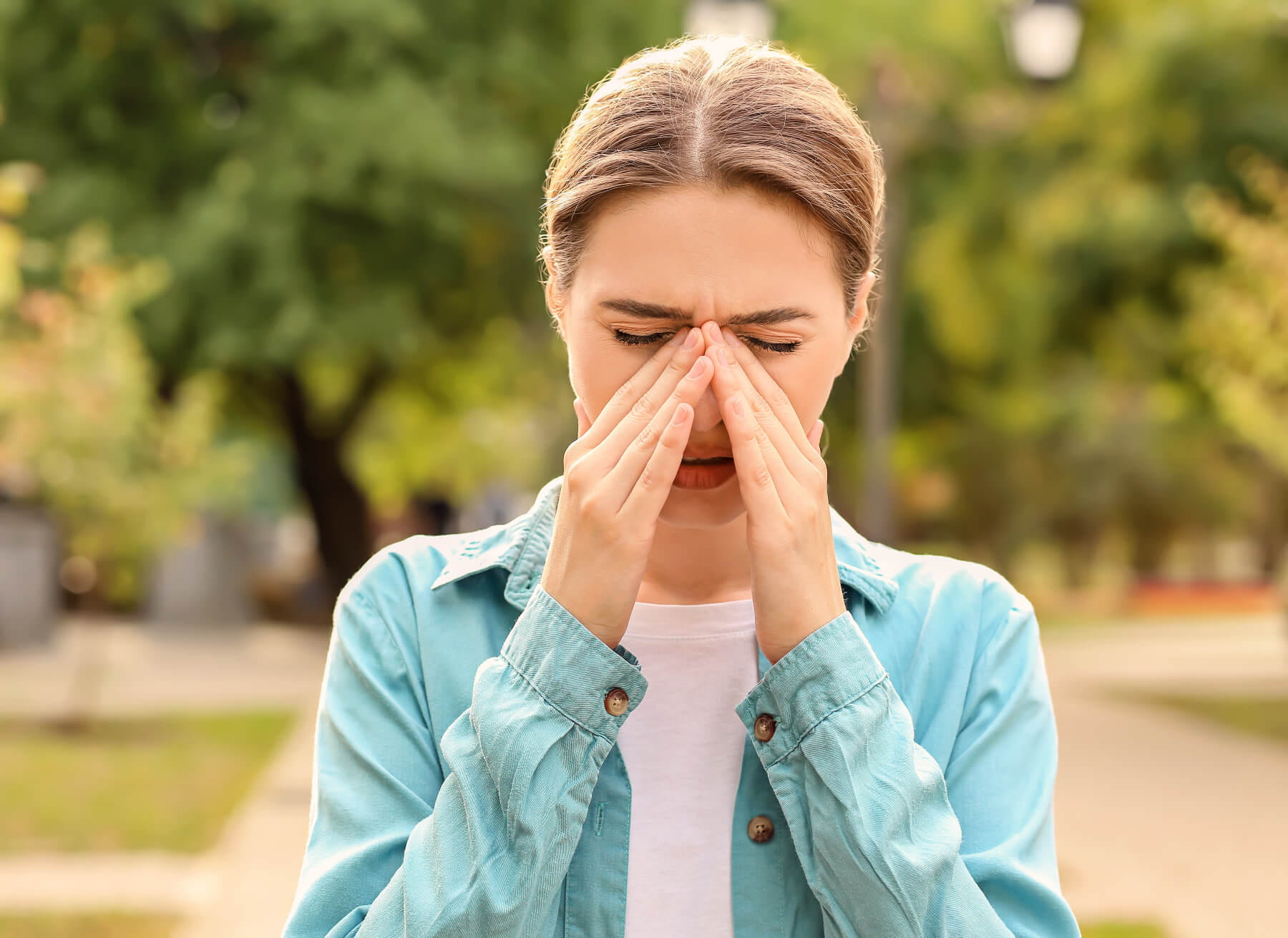
We all know how uncomfortable it is to try sleeping in a hot, stuffy room. Sleeping in a roasting and stuffy space makes it more difficult to fall asleep, harder to sleep deeper, and impossible to stay comfortable throughout the night.
During hot summer nights, you may consider using a fan instead of relying on air conditioning to help you sleep better. However, a fan might not be the ultimate solution we believe it to be. Despite its apparent simplicity, a fan may not provide the relief we expect.
Study: Recent studies have shown that a cooler room temperature — ideally between 65 to 68°F, but as low as 60 — promotes more restorative sleep by lowering your body temperature. [1]
Below, we'll explore the top reasons why sleeping with a fan on at night might not be the best idea and offer a more effective way to keep cool in bed so you can enjoy a deeper, more refreshing sleep.
Personalized Comfort Without a Fan Blowing on You
While sleeping with a fan on has plenty of drawbacks, cooling technologies, such as the Chilipad bed cooling systems, offer personalized sleep temperature control without the discomfort of direct cool air.
Is Sleeping with a Fan on Bad for You?
Sleeping with a fan on throughout the night is a common practice for many people, especially during hot seasons or in areas with high temperatures. However, this seemingly harmless way of staying cool can pose several health risks that only some know.
Most of these issues are minor and tend to be more annoying than harmful, but they are significant enough to make you think twice about relying on a fan for nighttime comfort.
1. Heighten Allergies
Using fans can sometimes worsen allergies or respiratory issues as they can circulate dust particles, pollen, pet dander, and other allergens in the air. When the fan is turned on, it can release allergens that get trapped in the fan blades or air filter, causing allergies to worsen.
Over time, household allergens and dust mites can build up on the ceiling fan blades without you knowing.
This can lead to symptoms such as sneezing, coughing, itchy eyes, and congestion. To reduce common allergy symptoms, it is recommended that the fan blades and air filter be regularly cleaned to minimize allergens.
Did You Know: Studies show seasonal allergies contribute to sleep disorders, snoring, and lower-quality sleep. [2]
2. Increase Sinus Irritation
The air blown out by your fan can irritate your sinuses, dry out your nose, mouth, and throat, and trigger your body to produce excessive mucus, leading to congestion and headaches.
Apart from this, sleeping with a fan can result in a sore throat. The constant breeze may cause discomfort if you have allergies. If you are already sick, the fan's constant flow of air may further aggravate your symptoms, making you feel worse than before.
If you are using a fan, it is advisable to use a humidifier or keep a glass of water near your bed. This will help counteract the fan's drying effect and prevent any discomfort that may arise.
Sleepme Newsletter
Stay up to date to receive exclusive discounts, sleep tips, and the latest sleepme news.
3. Result in Stiff or Sore Muscles
Waking up with muscle aches or a stiff neck is a common discomfort, and surprisingly, the use of a fan circulating air throughout the night may cause your muscles to tense. When a fan circulates air continuously throughout the night, it can lead to muscle tension, especially in areas exposed directly to the airflow.
This problem is particularly significant if the fan is positioned close to your face and neck. The constant blast of air can cause the muscles to stiffen up due to prolonged exposure to a cool breeze, waking up feeling sore or with a stiff neck, making it harder to move.
To help with this issue, you can adjust the fan's position so that the air doesn't blow directly onto you while you sleep. You might try pointing the fan in a direction that allows the air to circulate around the room without hitting your body directly.
4. Cause Dry Skin and Can Irritate Eyes
The continuous breeze from either a ceiling fan or desk fan during the night can lead to dry skin and eyes, particularly for those who already have a tendency towards dryness.
The fan's continuous airflow causes a more rapid evaporation of moisture from the skin and eyes, stripping away their natural lubrication. This results in uncomfortable dryness, with skin feeling tight or flaky and eyes becoming itchy or irritated.
People suffering from conditions like eczema or sensitive eyes may have these symptoms worsened. Moreover, if you wear contact lenses, the fan can increase eye discomfort, potentially leading to irritation or even more serious eye conditions if used consistently over time.
It's important to weigh these considerations before choosing to sleep with a fan on, especially if you already struggle with dry skin or eyes.

5. Increased Congestion
Airflow from a fan can dry out your mouth, nose, and throat, potentially triggering your body to produce more mucus. This can result in symptoms like headaches, nasal congestion, or even increased snoring.
Using just a fan alone isn't likely to cause illness, but it can amplify existing symptoms if you feel unwell. Staying hydrated and combining the use of a fan with a humidifier can be helpful in alleviating congestion.
6. Potential Noise Disruption
Even a low hum from a fan can significantly disrupt sleep for light sleepers or those who favor a completely silent sleeping environment.
Although some fans are designed to operate quietly, they still produce a consistent background noise, which can be noticeable in the stillness of the night. This sound, ranging from a gentle whirring to a more pronounced humming, can interrupt the sleep cycle, leading to frequent awakenings or difficulty falling asleep.
For people susceptible to auditory disturbances, this can mean a decrease in sleep quality, as their sleep may become more fragmented or receive less deep sleep. Additionally, for those accustomed to sleeping in absolute quiet, adapting to the sound of a fan can be challenging and may lead to longer-term sleep disturbances.
Did You Know: With the Chilipad Dock Pro noise, you'll hardly even know it is on at 41-46 decibels of ambient noise. Plus, it's guaranteed to keep your ideal bed temperature between 55-115°F, no matter the temperature of your bedroom or the heat your body gives off.
7. Interrupted Sleep
Did you know that the air movement around you at night may wake you up, increasing sleep disturbances? So what you use to improve your sleep may be disturbing it.
Fans offer little benefit in keeping you cool at night while potentially causing or increasing health issues. Instead of a fan, there are options for staying cool at night and falling asleep, including using our cooling mattress pad.
They are designed to help you avoid overheating and stay comfortable and stay cool all night long. Typical mattresses trap your heat and reflect it right back towards you, making it difficult to stay cool.
However, hot sleepers can use our cooling mattress pads to regulate their temperature, preventing them from overheating and sleeping hot.
8. Limitations in Temperature Control
When it comes to cooling a room, it's important to understand a fan's limitations. While it might feel like a fan is lowering the room temperature, it's just moving air around.
This movement creates a breeze or wind chill effect, making you feel cooler when the air passes over your body. However, the fan isn't reducing the room's actual temperature or your core body temperature at all.
This distinction becomes especially crucial during periods of extremely hot weather. If the room's ambient air temperature is already high, a fan's inability to cool the air becomes apparent; it merely circulates the existing warm air without reducing the heat. This implies that although you may experience temporary relief from the breeze generated, the overall warmth of the room stays the same.
This makes fans relatively ineffective in sweltering conditions, as they can't bring down the temperature like an air conditioner can.
Upgrade From a Fan: Sleep Cooler with Chilipad
Say goodbye to ineffective air blowing and embrace a cooler, more efficient sleep method. Our Chilipad bed cooling systems leverage water’s thermal powers, so you can sleep at your ideal temperature throughout the night, guaranteed to provide better sleep.
How to Sleep Cooler at Night
We've already mentioned the Chilipad sleep system, but there are other ways to sleep at a cooler temperature.
- Breathable cool bedding
- Take a warm shower
- Hydrate before bed
- Use blackout curtain
- and more
Looking for more ways to stay cool and sleep cooler through the night? Read our blog to uncover effective tips and strategies for staying cool at night and improving your sleep quality.
Final Thought
It's clear that while fans are popular for staying cool and making your room cool, they come with their own challenges. Sleeping with a fan on can have plenty of side effects, from the potential to exacerbate allergies and dry out your skin and eyes to the possibility of causing muscle stiffness and sleep disruptions due to noise.
It's important to weigh these factors against your personal needs and sleep preferences. For those looking for alternatives to sleeping with a fan on, options like breathable bedding, cooling mattress toppers, and maintaining a cooler room temperature can offer relief without the downsides of a fan.
Remember, creating the ideal sleep environment balances comfort, temperature, and personal preference, ensuring restful, uninterrupted sleep.
Citations
[1] Doheny, Kathleen. “Can’t Sleep? Adjust the Temperature.” WebMD, 23 Mar. 2022. View Resource
[2] JAMA and Archives Journals. (2006, September 20). Allergic Rhinitis Associated With Impaired Sleep Quality. ScienceDaily. View Resource






